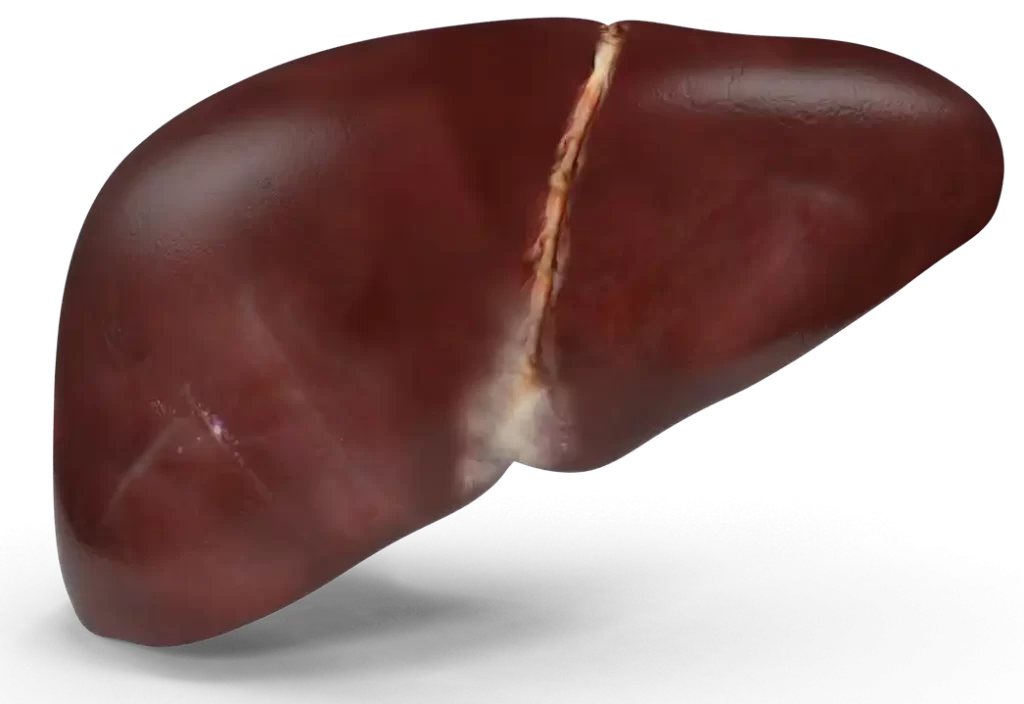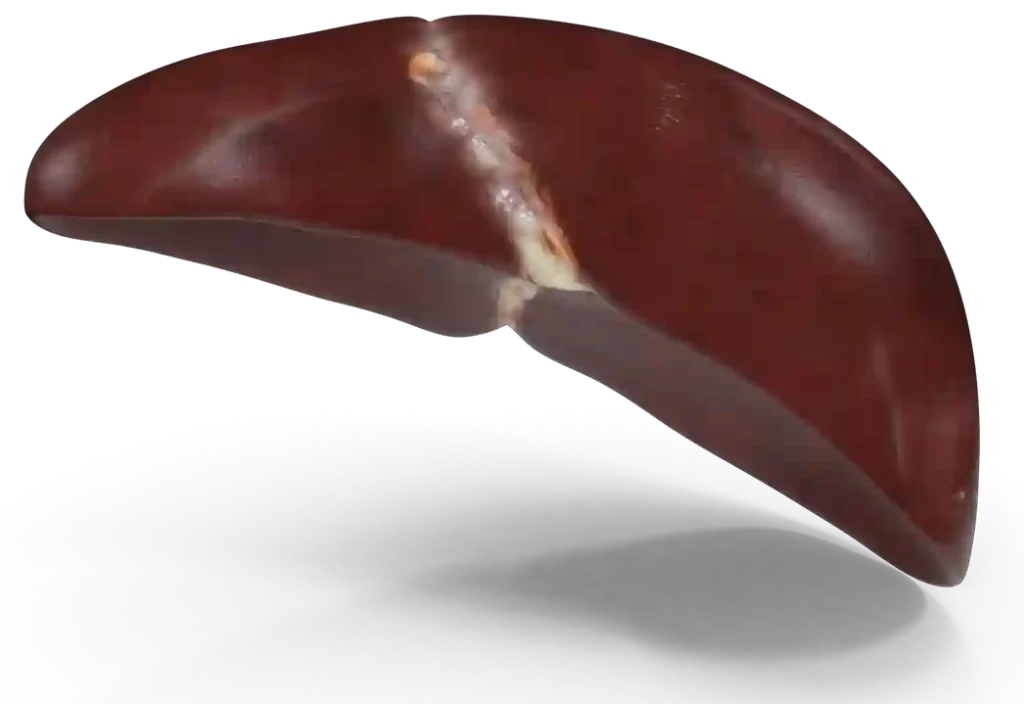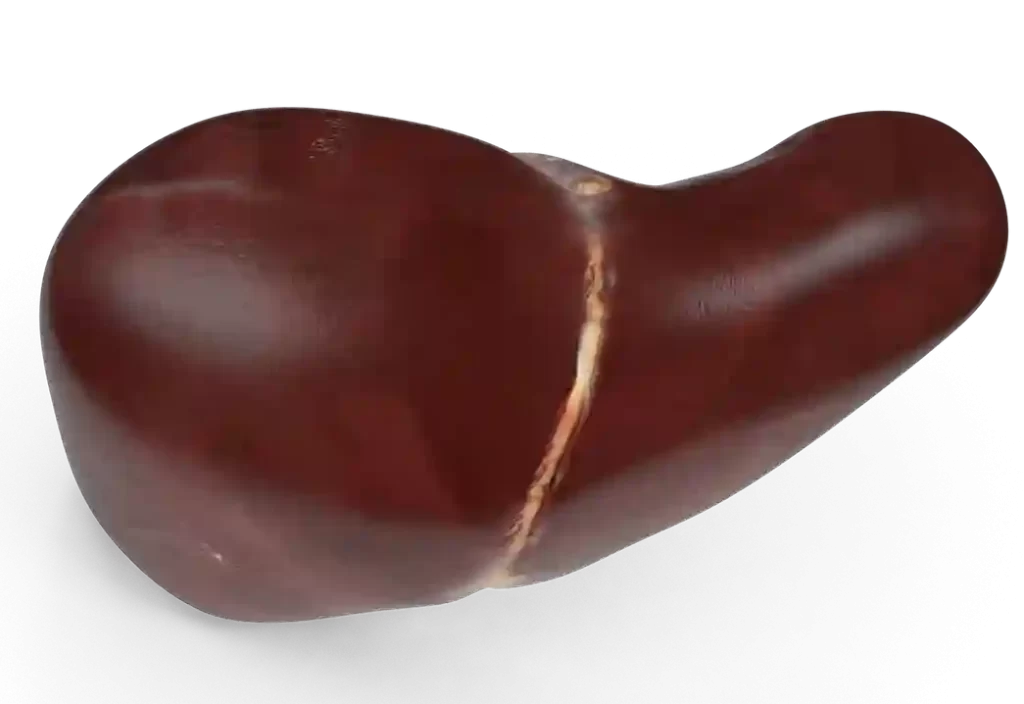Liver Transplant
Dr. Magnus Jayaraj Mansard provides the best liver transplant in Chennai, and he has over 17 years of experience in the medical field. Explore Now!
Our Liver Transplantation surgeons provide sophisticated care for both living and deceased donor transplants, assuring the best outcomes for patients. Contact us for consultations and complete liver care.
If a human body’s liver encounters infection or disorder, it can severely impact normal processes making liver transplant the last resort when other medical interventions are ineffective. The liver transplant in Chennai plays a vital role in providing individuals with a fresh start, as it effectively replaces the infected liver with a healthy one. This enables the patients to regain their health and enjoy an improved quality of life.
For those looking for a liver transplant in Chennai, Magnus Gastro & Liver Clinic offers the most reliable and experienced medical team that is committed to providing excellent care to every patient to ensure the success of each liver transplant procedure.



What is a Liver Transplant?
A liver transplant is a surgical intervention aimed at treating a liver that is diseased or damaged beyond repair. During this procedure, the impaired liver is substituted with a healthy liver procured from a donor. This intricate process is typically recommended for individuals with end-stage liver disease or acute liver failure when other medical treatments are ineffective.
Following a liver transplant in Chennai, patients will necessitate ongoing medical care and medication to prevent rejection of the newly transplanted liver by their immune system. At Magnus Gastro & Liver Clinic, the leading center for liver transplant in Chennai, our primary objective is to deliver exceptional care and treatment to our patients at an affordable price.
Who Needs a Liver Transplant?
Liver transplant is typically recommended for individuals with end-stage liver disease or acute liver failure. Patients who may require a liver transplant include those with cirrhosis, hepatitis B or C, alcoholic liver disease, genetic liver disorders, liver cancer, or certain metabolic disorders. A thorough evaluation by a medical team determines the need for a liver transplant surgery in Chennai, based on the severity and progression of the liver condition.
Symptoms of Liver Disease
When you experience the common symptoms of liver disease, you should get immediate medical attention from the medical experts by visiting the Magnus Gastro & Liver Clinic else it may worsen your condition. The symptoms of liver disease that requires the best liver transplant in Chennai include:
- Fatigue and weakness.
- Color changes from yellowing of your skin and eyeballs (Jaundice).
- Pain in your upper right abdomen.
- A swollen belly (Ascites).
- Nausea and vomiting.
- Loss of appetite.
- Itchy skin.
- Dark urine.
- Pale or clay-colored stools.
- Swelling in the legs and ankles.
- A feeling of discomfort (Malaise).
- Disorientation.
- Sleepiness.
- Tremors.
Also, it is important to take routine liver function tests and regular medical check-ups from the best liver transplant doctor in Chennai to avoid future complications.
Types of Liver Transplantation
Liver transplantation is a critical surgical procedure carried out to replace a diseased liver with a healthy one. In Chennai, advancements in medical science have significantly improved liver transplant outcomes, with two primary types of liver transplantation being practiced:
Living Donor Liver Transplantation (LDLT) is prevalent, especially in Chennai and across Eastern countries, where a healthy, voluntary close relative donates a part of their liver. This approach is notable for its several advantages, making it a preferred option for many.
Deceased Donor Liver Transplantation (DDLT) involves transplanting a liver from a deceased donor, typically someone who has suffered irreversible brain injury, often due to accidents. This type is crucial for patients who may not have a suitable living donor.
Advantages of Living Donor Liver Transplantation in Chennai include:
- Immediate Organ Functionality: The transplanted liver from a living donor starts functioning immediately and regrows to its full size within a few months.
- Reduced Waiting Time: LDLT significantly decreases the waiting period for a transplant, allowing patients to undergo surgery as soon as they are fit for the procedure.
- Faster Recovery: Patients tend to recover more quickly due to the superior quality of the liver graft compared to those obtained from deceased donors.
For individuals considering a liver transplant in Chennai, understanding these transplantation types and their benefits is crucial in making informed healthcare decisions. The city’s healthcare infrastructure and expertise in liver transplants offer hope and a new lease on life for many facing liver diseases.
Importance of Liver Transplantation
The liver is a vital organ responsible for essential functions such as detoxification, protein synthesis, and bile production. When the liver fails due to chronic conditions or injury, a transplant becomes necessary to restore normal bodily functions.
- Enhanced survival: Replaces a diseased liver with a healthy one.
- Improved quality of life: Reduces symptoms like fatigue, jaundice, and fluid retention.
- Critical for irreversible liver damage: It is the only solution when all other treatments fail.
- Chennai’s medical infrastructure and experienced liver transplant doctors in Chennai make it a leading destination for this procedure.
Indications for Liver Transplant
A liver transplant is recommended when liver damage becomes life-threatening. Common indications include:
- Chronic liver diseases: Cirrhosis, alcoholic liver disease, and hepatitis B or C.
- Acute liver failure: Rapid deterioration due to toxins or infections.
- Liver cancer: Unresectable tumors confined to the liver.
- Congenital liver conditions: Such as biliary atresia or metabolic disorders.
Early diagnosis and consultation with a liver surgeon in Chennai are critical for timely treatment and better outcomes.
The Liver Transplant Procedure
The process of liver transplantation involves a thorough evaluation, surgery, and postoperative care. Here’s a breakdown:
Preoperative Phase
- Comprehensive tests to assess liver function.
- Matching a donor liver (either living or deceased).
- Counseling on the liver transplantation cost in Chennai, which varies based on hospital and patient needs.
Surgical Procedure
- Removal of the diseased liver.
- Implanting the donor liver with liver transplant process.
- Ensuring proper blood flow and bile duct connections.
Postoperative Care
- Regular monitoring to prevent rejection.
- Lifestyle modifications, including medication adherence.
- Follow-ups with a liver transplant doctor in Chennai for long-term success.
Benefits of Liver Transplant
- Restores Liver Function: A new, healthy liver takes over essential roles like filtering toxins and producing vital proteins. Most patients feel better within days after surgery under the guidance of an experienced liver surgeon in Chennai.
- Improves Survival: Liver transplant increases survival rates in cases of cirrhosis, liver cancer, and acute failure—especially when performed by the best doctor for liver transplant in India.
- Boosts Quality of Life: Symptoms like fatigue, jaundice, and fluid retention improve. Patients regain independence and resume daily activities, especially with support from a skilled liver surgeon in Chennai.
- Long-Term Health Gains: Many live 15–20+ years with proper care. The best liver transplant specialist in India ensures successful outcomes with long-term guidance.
- Better Mental & Emotional Health: With physical recovery comes emotional relief—less anxiety, improved sleep, and a brighter outlook on life.
Causes of Liver Disease
Liver disease is a broad term that encompasses a range of conditions that affect the liver’s normal functions, which can include inflammation, scarring, damage, and failure. The various causes of liver disease include:
- Viral hepatitis.
- Alcohol-related liver disease.
- Non-alcoholic fatty liver disease.
- Autoimmune liver disease.
- Metabolic liver disease.
- Drug-induced liver disease.
- Inherited liver diseases.
- Obesity and poor diet.
- Exposure to toxic chemicals.
- Liver transplant for cirrhosis.
- Gallbladder or biliary tract diseases.
- Other chronic illnesses (HIV/AIDS or cystic fibrosis).
Obtaining an early diagnosis and treatment of liver disease from a liver transplant specialist in Chennai holds significant importance, as it can effectively prevent the progression of complications and enhance overall outcomes.
Risks and Complications of Liver Transplant
Liver transplant can be life-saving, but it involves certain risks during and after surgery. With expert care and close monitoring, most complications can be managed effectively.
- Bleeding & Clots: Due to the liver’s blood supply, bleeding is common. Blood clots in major vessels can affect liver function and may need urgent treatment.
- Infections: Immunosuppressants raise the risk of infections like pneumonia or UTIs. Preventive care and early detection help reduce serious illness.
- Organ Rejection: The body may attack the new liver. Acute rejection is treatable, while chronic rejection can affect long-term success.
- Medication Side Effects: Long-term drugs may cause kidney damage, diabetes, high blood pressure, or bone weakness.
- Bile Duct Issues: Leaks or blockages may lead to jaundice or infection and may require additional procedures.
Eligibility Criteria for a Liver Transplant in Chennai
Due to the scarcity of available organs, eligibility criteria have been established to ensure that the liver transplant in Chennai is reserved for individuals who will benefit the most from the transplant.
- End-Stage Liver Disease: The primary indication for liver transplantation is end-stage liver disease, where the liver is severely damaged and cannot perform its functions adequately. This may be due to conditions such as cirrhosis, hepatitis, alcoholic liver disease, or genetic disorders.
- Medical Stability: Candidates must be medically stable to undergo a major surgical procedure. This includes having no active infections, controlled blood pressure, stable heart and lung function, and absence of other severe illnesses that could increase the risk of complications.
- Absence of Contraindications: Certain conditions may be considered contraindications for liver transplant in Chennai. These include active substance abuse, severe heart or lung disease, uncontrolled infections, and active cancers outside the liver that may significantly reduce the chances of a successful transplant outcome.
- Life Expectancy: Candidates should have a reasonable life expectancy following the transplantation. This is assessed by evaluating the severity of the liver disease, the absence of other life-limiting illnesses, and the potential for post-transplant complications.
- Absence of Unmanageable Psychosocial Issues: Candidates should have a support system in place and be mentally and emotionally prepared for the challenges of the transplant process. The liver transplant in Chennai involves undergoing psychosocial evaluations to ensure adequate social support, compliance with medications, and ability to follow post-transplant care instructions.
- No Active Drug or Alcohol Abuse: Individuals with a history of drug or alcohol abuse must demonstrate at least six months of abstinence and participation in a rehabilitation program. This is crucial to ensure the success of the transplantation and prevent the recurrence of liver damage due to substance abuse.
Diagnostic Tests
At Magnus Gastro & Liver Clinic, we provide comprehensive care to individuals with advanced liver diseases who may require a liver transplant. There are several diagnostic tests that may be used before and after a liver transplant in Chennai, including:
- Blood Tests: To assess liver function, evaluate for infection, and monitor for rejection.
- Imaging Studies: This includes the ultrasound, CT scan, and MRI to evaluate the liver and surrounding structures before and after the transplant.
- Liver Biopsy: To assess the health of the liver and monitor for rejection.
- Doppler Ultrasound: This test is taken by the best liver surgeon in Chennai to assess blood flow in the liver and detect potential complications such as blood clots.
- Endoscopic Procedures: Including endoscopic retrograde cholangiopancreatography (ERCP) and esophagogastroduodenoscopy (EGD) to evaluate the bile ducts and stomach.
What is the success rate of liver transplants?
The success rate of liver transplants varies depending on several factors, including the recipient's overall health, the quality of the donor organ, and the expertise of the medical team. In general, the survival rates for liver transplant recipients have improved significantly over the years, with many patients experiencing long-term success.
- Patient Survival: The one-year survival rate for liver transplant recipients is typically around 85% to 90%, while the five-year survival rate is approximately 70% to 80%.
- Graft Survival: The graft survival rate, which refers to the survival of the transplanted liver, is also high, with one-year rates ranging from 80% to 90% and five-year rates averaging 70% to 80%.
- Factors Influencing Success: Factors such as patient age, underlying medical conditions, and adherence to post-transplant care regimens can influence the success of liver transplants.
Liver transplant in Chennai success rates align with global standards, with leading hospitals boasting high success rates and comprehensive post-transplant care programs.
Why Choose Magnus Gastro & Liver Clinic?
At Magnus Gastro & Liver Clinic in Chennai, we offer the highest quality of care for patients requiring a liver transplant in Chennai to ensure a successful outcome. Our staff is highly skilled and experienced, providing compassionate and caring support throughout the entire process.
Understanding Paediatric Liver Transplant
Pediatric liver transplant in Chennai involves replacing a child’s diseased liver with a healthy one from either a living or deceased donor. Common indications include biliary atresia, liver failure, tumors, and genetic disorders. Rigorous evaluations precede the surgery, ensuring the child’s suitability. Post-transplant, meticulous care and immunosuppressive medications are crucial for a successful outcome.
Chennai boasts reputable medical facilities with experienced transplant teams, offering advanced pediatric liver transplant services. Long-term follow-up and care are essential for the child’s overall well-being after the procedure. Consultation with a pediatric hepatologist in Chennai provides personalized insights based on the child’s specific condition.
Hepato-Pancreato-Biliary (HPB) Surgeries
Hepato-Pancreato-Biliary (HPB) surgeries, encompassing liver transplant, are intricate procedures vital in treating end-stage liver disease, acute failure, or specific liver cancers. Candidates undergo meticulous evaluation, considering severity and overall health, before joining the organ waiting list. Donor livers, sourced from deceased or living donors, undergo a complex surgical process for implantation.
Post-surgery, vigilant monitoring and immunosuppressive medications prevent rejection. HPB surgeries, including liver transplants, represent a critical frontier in medical science, offering hope and renewed life to individuals facing dire hepatic conditions through advanced surgical techniques and comprehensive postoperative care.
Conclusion
You can approach Dr. Magnus Jayaraj Mansard to get the best liver transplant in Chennai. This liver transplant doctor along with other teams of specialists treats all his patients with a multidisciplinary approach throughout the transplant journey starting from initial assessment to post-operative care. Moreover, the experts here highly work with a commitment to research and innovation to make sure that the patients get the best possible care at a reasonable cost.
Looking for liver transplant in Chennai? Our best liver transplant surgeons provide innovative treatment and great outcomes for both living and deceased donor transplants. Schedule your consultation today for skilled liver care.
Frequently Asked Questions
The best liver transplant in Chennai depends on factors like advanced technology, experienced surgical teams, post-transplant care, and success rates. Choose a center with a dedicated transplant unit, comprehensive patient support, and modern infrastructure for the best outcomes. Evaluating patient reviews and success rates can help in making an informed decision.
There is no fixed age for a liver transplant; eligibility depends on overall health, disease severity, and transplant suitability. Both children and adults can undergo the procedure if they meet medical criteria. Successful outcomes depend on factors like organ availability, underlying conditions, and post-transplant care rather than just age.
Not everyone is a candidate for a liver transplant in Chennai. Patients with active cancer or severe heart or lung disease may be excluded, as well as those with active drug or alcohol abuse, severe infections, or poor overall health. Ultimately, the decision to perform a liver transplant is made on a case-by-case basis by medical professionals.
Life after a liver transplant in Chennai can be significantly improved for patients who previously suffered from liver failure. However, it can also present new challenges, such as the need for lifelong medication, regular follow-up appointments, and the risk of rejection. With proper care and monitoring, many patients are able to return to their daily activities and live full, healthy lives.
Liver transplant recipients can live for many years, and survival rates have improved significantly over the years due to advances in medical procedures and post-transplant care. Many people can live more than 20 years after transplantation, and some have even exceeded 30 years. However, individual outcomes can vary based on several factors, including the recipient’s overall health, the cause of the liver failure, the recipient’s age, and adherence to post-transplant medications and lifestyle recommendations.
